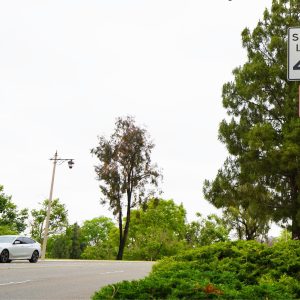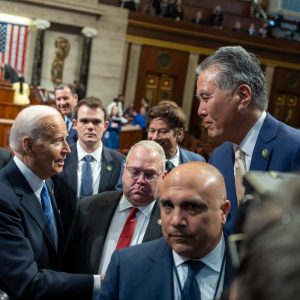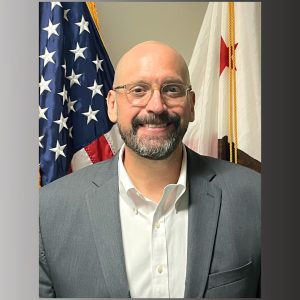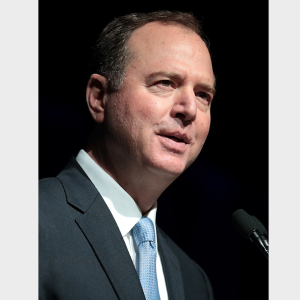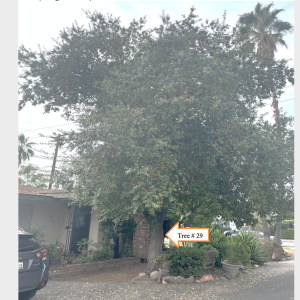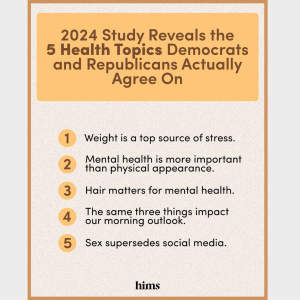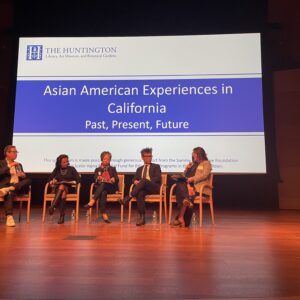 View Winners →
View Winners → Lexipol: Constitutional Villain?

Anya Slaughter, mother of Kendrec McDade, is pictured here at a rally in April 2012 a few weeks after Pasadena officers shot and killed the unarmed teenager – Photo by Terry Miller
Lexipol: Constitutional Villain?
OPINION:By Nick Kipley
During the Public Comment Section of this week’s City Council Meeting, a group of activists spoke in turn about alleged procedural mishaps and poor decisions executed by the Pasadena Police Department which ultimately resulted in an officer-involved fatal shooting of an unarmed felony suspect, 19-year-old Kendrec McDade, on the night of the 24th of March, 2012.
The officers’ decision to use lethal force was partially a result of a facetious call made by an Oscar Carrillo, who was later found guilty for lying to the dispatcher in his 911 call about McDade robbing him, he claimed multiple times, “at gunpoint,” in order to get a faster response time from the authorities.
The testimonies made Monday night before the Mayor and City Council were primarily concerned with the logistics of how the officers involved came to use deadly force against McDade. This included a statement made by McDade’s mother Anya Slaughter, who questioned the council as to why a police officer would chose to shoot a visibly wounded and unarmed suspect, before becoming too emotional to continue and subsequently left the chamber.
What immediately comes to mind considering the entire situation are the words of President Obama, who, speaking of the carnage which erupted yesterday in Baltimore, said, “Maybe America needs to do a little soul-searching.”
The next thing that comes to mind was an interview that the Independent did with Pasadena Chief of Police Philip Sanchez regarding the police audit released a little over a month ago, because one of the key terms used by all eight people who came up to speak before the council was the word “policy.”
Pardon the digression, but in personally reflecting on the word “policy,” a tangential stream of T.V. images from Baltimore, President Obama’s words, what Chief Sanchez recently told the Independent, and to a lesser extent, other very uncomfortable recent events not limited to, but including the recent shooting of Eric Harris, unarmed, by a volunteer reserve deputy of the Tulsa Police Department, bad news trickling, still trickling out of Ferguson like pus from a wound, the recent virtual reality phenomenon “One Dark Night,” which immerses users in the thick of the 2012 Zimmerman/Martin shooting, #blacklivesmatter, #ICantBreathe, et. al, caused this reporter involuntarily think, “Lexipol.”
Because, when gathering research on multiple shootings-of-unarmed-black-men it’s far too easy to paint the issue as a racial one and thus overlook the real problem here: who-the-actual-f*** is writing all of these police manuals? Because, when you look at Baltimore, Tulsa, Ferguson and Pasadena, it sometimes feels like all of the police departments in those respective cities got all their ideas from one specific guy.
And the worst fact of all—it turns out—they actually might have.
In an official report published last year entitled “Public Safety in the City of Baltimore: A Strategic Plan For Improvement,” which is credited to Anthony Batts, Police Commissioner of the Maryland city, there exists in Strategic Objective 4.4 an interesting goal which reads as follows: “Reform General Orders on personnel conduct to improve and better broadcast the department’s integrity and dedication to the community.”
Which reads strange given—you know—the rioting.
Then, providing background for the initiative in a subsection deftly entitled, “Background,” the Strategic Improvement Report goes on to say: “The [Baltimore Police] department is undertaking an initiative with a third-party specialist to review all departmental policy and governing procedures, standardize their formats, and provide a digital interface for easy reference. The contractor, Lexipol, is a national specialist in building law enforcement policy databases and reviews.”
In other words, the Baltimore Police Department paid to have their policing manual rewritten by an Orange County, California private-sector firm which specializes in a self-described “constitutionally sound” method of policing.
Which all sounds a bit ridiculous until one considers that Chief Phil Sanchez of the Pasadena Police Department claimed that many policies adhere to the “Lexipol Standard” of police work, even going as far as to say that “Lexipol is a constitutional based best-practice policy model,” and that PPD’s policy # 402, otherwise known as “Racial- or Bias-Based Profiling” is, Chief Sanchez said, “Lexipol pure.”
This is problematic, given there are very few people in the United States, currently, who could sit down and interpret the Constitution with any final say on the matter and thus write a score of police manuals on their final say. Since those very few (12 to be exact) people are currently serving as Supreme Court Justices, this reporter doubts the legitimacy of any corporation peddling policies that all have weirdly turned cultural image of a police officer from the sort of gawky mid-century hat-wearing guy stopping traffic with a whistle, into what has effectively become—in some grim cases—an unstoppable paramilitary force.
And what’s even more unsettling is the sheer audacity with which this has occurred. On Lexipol co-founder (one of three) Gordon Graham’s own website, he proudly states: “most of the law enforcement agencies in California … and nearly half of the States are now using this approach to law enforcement operations. This effort has greatly improved the safety of police personnel while also influencing a dramatic reduction in claims, settlements and verdicts adverse to law enforcement agencies.”
In other words the, “shoot first, ask questions later,” policies adopted nationwide are not racial, not hyper-violent, not a reaction to an increase in violent crime: it’s so the cops don’t get sued as much. Lexipol, then, can in some ways be seen like a hyper-conservative legal moat dug around the walls of whichever Police Department so seeks to adapt their highly effective “policies.”
Nevertheless, given the complexity of this issue, the Pasadena Independent would like to invite readers along this multi-week journey as we explore—in depth—the way the privatization of public policy in America is costing taxpayers their hard-earned money, hard-fought liberties, and—in some cases—their lives.






















































